A Family Story
The passion for pasta is embodied in the Di Martino family who have owned the pasta factory "pastificio" for over 100 years
The founder
Like all stories, that of the Di Martino family has its protagonists. The founder of three generations of pasta makers was Giuseppe Di Martino. Giuseppe began to learn the secrets of the pasta production when he was still a child. In 1907, at the age of 10, he started working in a pasta factory whose owner had no sons that would inherit his legacy. Giuseppe soon became a master of the pasta making art and earned the admiration and respect of the factory owner, who over time decided to sell him his shares. It was 1912 when the Pastificio Di Martino we know today was born and it was the first shop you could find when entering the town of Gragnano. With no direct neighboring competitors, it resembled an island of taste for the city
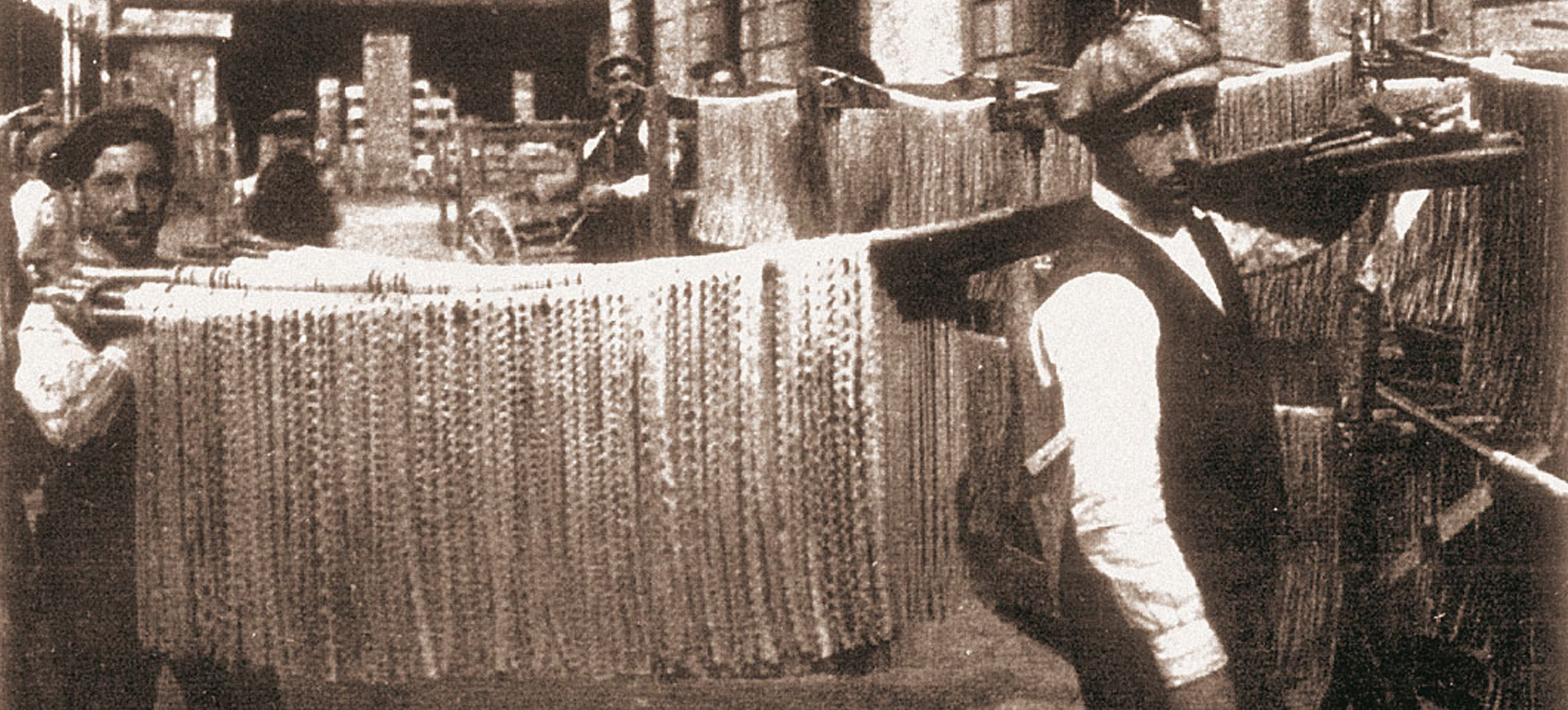
Conquering the world
Back in the day, pasta was still sold loose and hand-wrapped in a typical blue paper that distinguished the entire product category. The pasta was delivered in tin boxes or in wooden crates to be exported abroad. The geographical position of Gragnano has always facilitated the transportation of goods by sea. It is said, that in 1915 the Di Martino Pasta was the first to cross the Panama Canal aiming to distribute to Italians living abroad that already recognized its high quality. Soon Giuseppe Di Martino would involve his two younger brothers, Vincenzo and Francesco, to grow the business
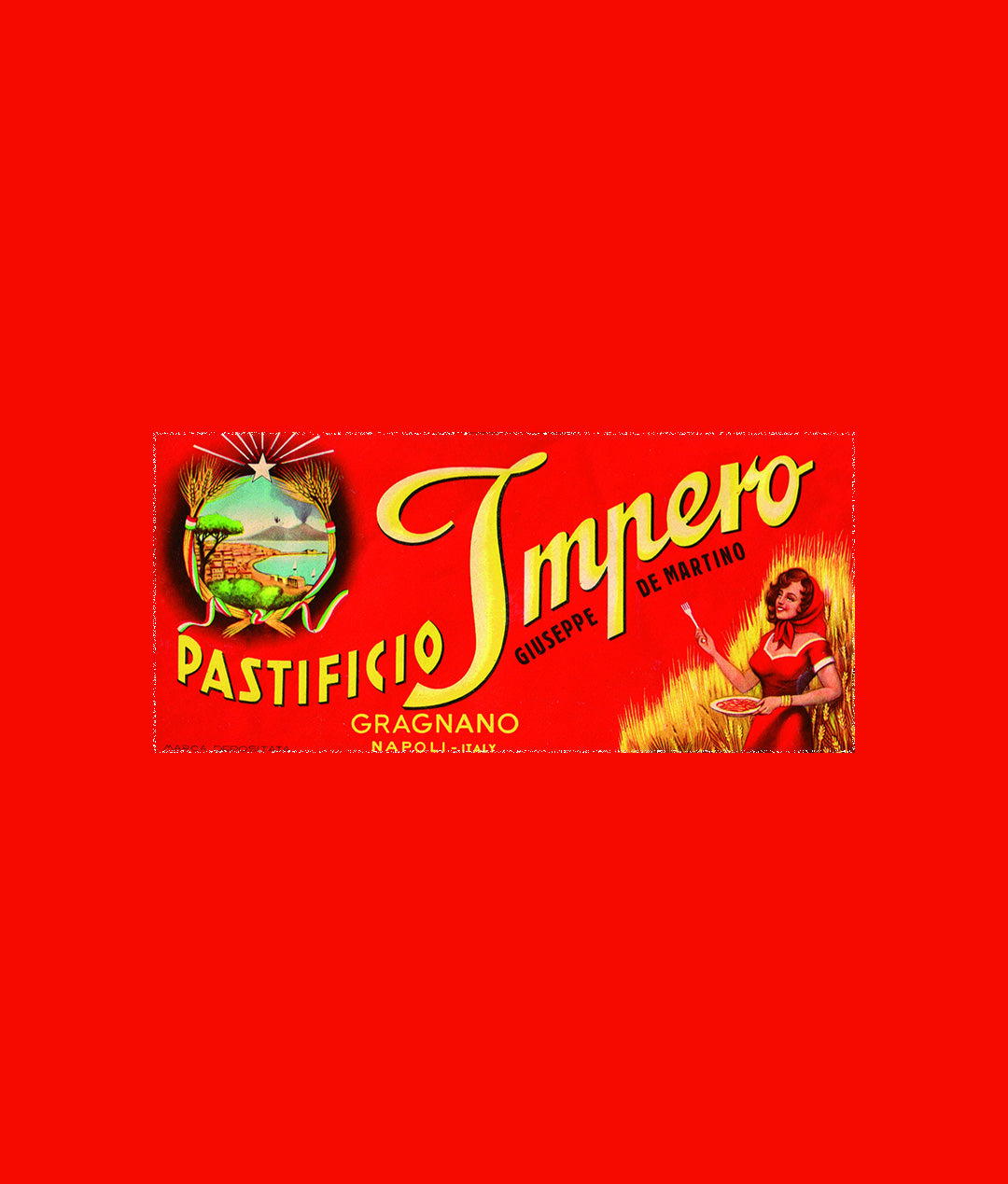
The arrival of fascism
During the Fascist era, the company's name changed: it was mandatory for businesses to change their names and show their loyalty to the regime, so Di Martino became "Pastificio Impero". Giuseppe Di Martino had to make the female logo blond and "Aryan". During world war II, many pasta factories suffered heavy consequences. The city of castellammare was a military ship base and Gragnano became a strategic location for storing food supplies. The bombings, though, did not spare the pasta factory and the German troops left nothing to the Allies. Thus, for a week, the Di Martino family was forced to pick up the pieces of pasta stuck between the beams of the floors, in order to feed themselves. In 1944 Giuseppe Di Martino introduced two of his six children to the company: Giovanni and Gaetano, aged 16 and 11 respectively. It was Giovanni who intensified the marketing of Di Martino pasta in Milan and Rome. His only sister ran the family pasta factory for some time and then moved to Naples
After the War
In 1948, the name and logo could be changed again, and so it shifted back to "Di Martino". In the fifties, Giuseppe modernized the machinery of the production cycle and began to bring his other sons, Valerio and Vincenzo, to the company. Giuseppe Di Martino had a forward-thinking, relentless personality. In 1961, he was struck by the unexpected death of his son Giovanni who directed the pasta factory until 1972. In the meantime, Gaetano became head of production, Valerio the head of administration and Lucio commercial manager
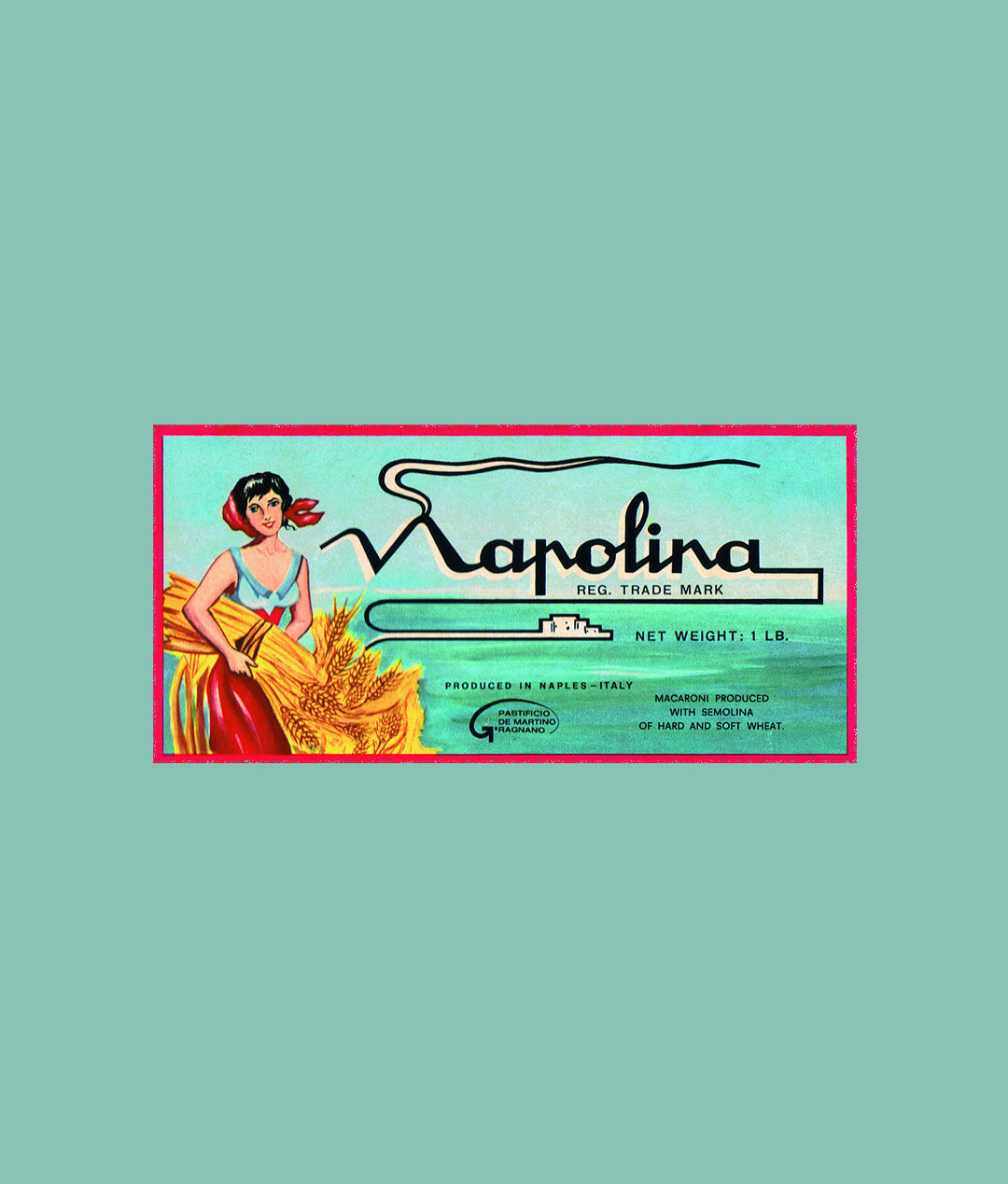
The 70's
It was a difficult time, due to the energy crisis. The Di Martino family used to have a very personal and trusting relationship with its employees, considered and respected as family members. In those years, Giuseppe Di Martino was not afraid to get his hands dirty again and personally take care of the pasta production together with his family. He died in 1977 and worked until a few days before his death
The Earthquake and Reconstruction
The terrible earthquake of 1980 was a severe blow to the company, and the second Di Martino generation faced the titanic undertaking of repairing the damage caused to the structure with tenacity and courage. Just six months after the earthquake, the Di Martino pasta factory resumed its activity, dominating the pasta production in Gragnano. In 1983 the Di Martino family built a new wing to the pasta factory, investing well above their own economic possibilities and building a modern structure after the damage. Having overcome this adversity, Valerio Di Martino, a man of great sensitivity and humanity, specialized in administrative work and managing the relations with suppliers and staff. Over time he developed important skills in the selection of durum wheat semolina, role of great responsibility in the pasta making. His brother Gaetano soon became a new reference figure in the pasta factory and the keeper of the secrets of pasta drying techniques. With his love for mechanics, it became his duty to supervise the workers and the assembling of each new piece of machinery installed in the pasta factory. The sensitivity of the two brothers was fundamental for developing the high quality standards that characterize Di Martino pasta
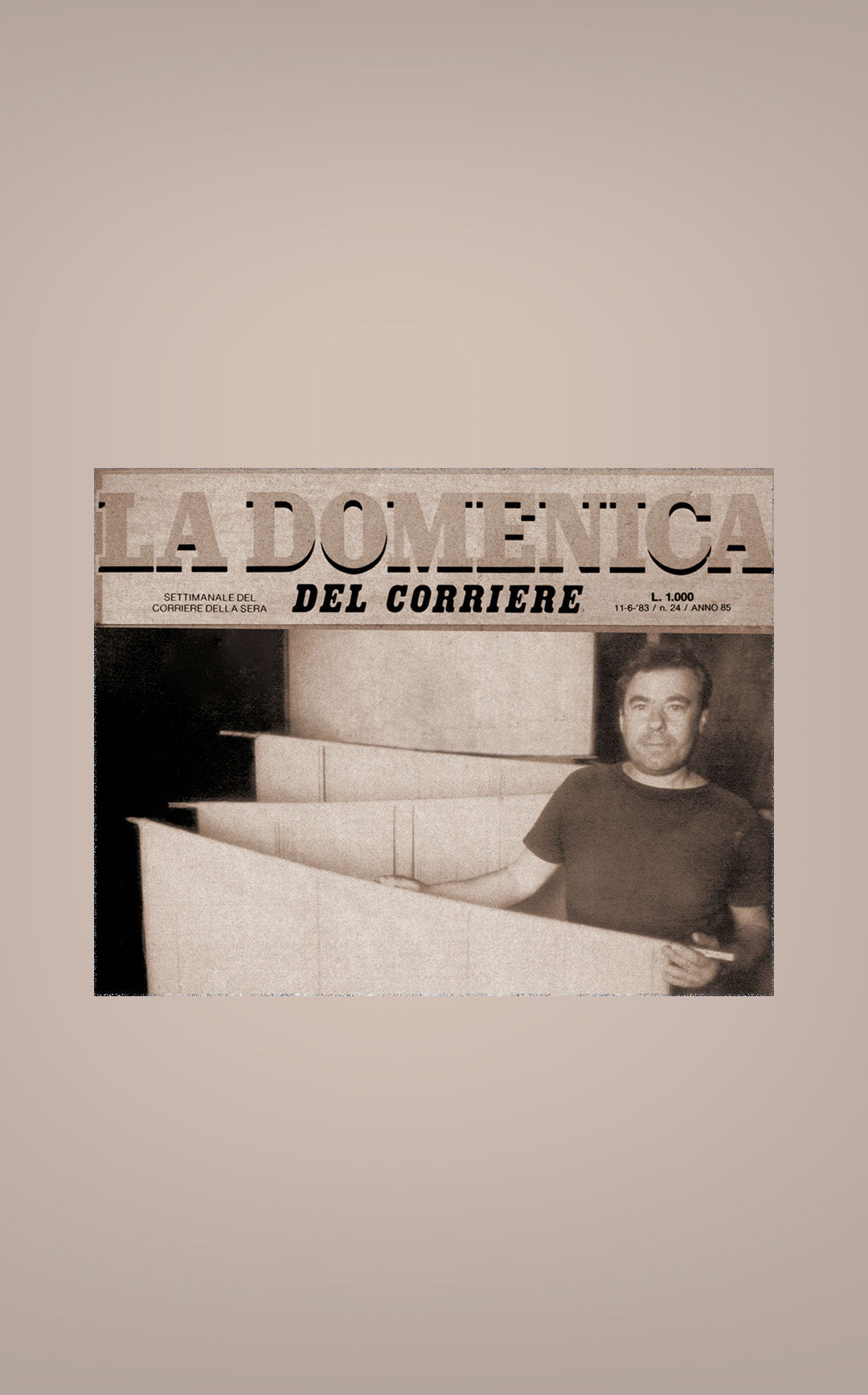
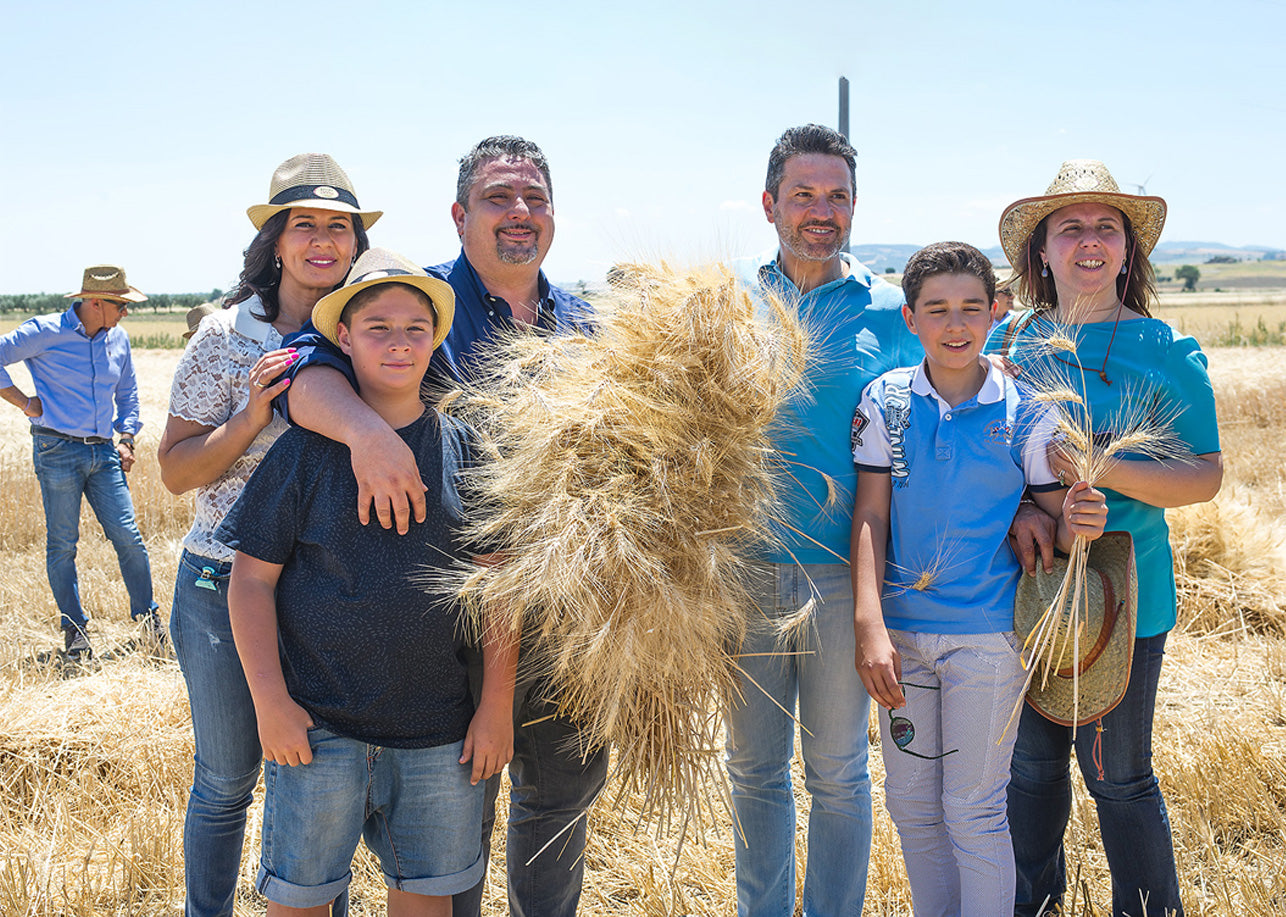
A Mission that continues
With over a hundred years of well-tested experience, today Giuseppe and Giovanna Di Martino, third generation pasta makers, carry on the family ideals with the same passion, and value for quality, craftsmanship, innovation, protection of the territory, its people and its culture
